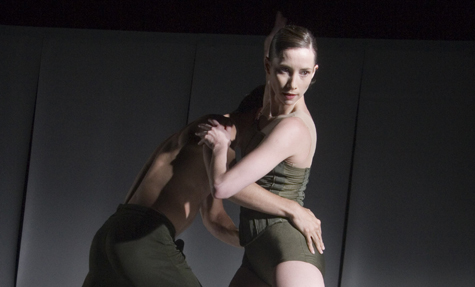
SLEEPLESS: Enough with beginnings that are also endings. |
At his Prairie Home Companion show at Tanglewood on June 30, Garrison Keillor went into one of his trademark reveries and began to tell us about Tanglewood’s “designer” fireworks. “An American flag . . . that one was a Venti Non-Fat Mochaccino . . . and there’s one in the likeness of James Levine, and they got it just right — amazing — the glasses and that fuzzy hair and everything . . . and they’re lighting another one . . . and it says, ‘Powder Milk Biscuits.’ ” Real life seldom lives up to the mottled glories of APHC, and in actuality there was no Starbucks and no Jimmy at “OPENING NIGHT AT TANGLEWOOD”on July 6. There was, however, thunder and lightning and rain, and Tanglewood was fortunate to get in the pyrotechnics — which, as seen from the parking lot, made for a swell show, even without the caffeine.
There were fewer fireworks at the preceding concert, which offered Mendelssohn’s Overture and Incidental Music for A Midsummer Night’s Dream before intermission and Tchaikovsky’s Fourth Symphony after. The Overture, which Levine conducted sans baton, was a fleet scurry with a modest donkey bray, gossamer in its detail and bullfrog-plangent in its lower depths, the basses (so elevated they were looking down at Levine) and the tuba. Rapturous applause followed (the audience applauded after every movement), and then an unplanned 10-minute break while latecomers (from the benefactor tent?) were seated.
The Queen Mab–like Scherzo was all woodwind burble, the Intermezzo had a Viennese lilt, and the brass were no more timorous than you’d expect on a damp and difficult evening. In the Song with Chorus (“You spotted snakes, with double tongue”), soprano Heidi Grant Murphy seemed determined to enunciate clearly, with intermittent success; both she and mezzo-soprano Kristine Jepson could have been less earnest. So could Levine — note for note, the piece was immaculately played, but Shakespeare’s stealthy and sometimes slapstick humor was missing.
The BSO performed the Tchaikovsky Fourth with guest conductor Christoph von Dohnányi last April, and the result was what you expect from Dohnányi: great tensile and structural strength, not a lot of shimmer. Levine made more of Tchaikovsky’s instrumental detail, especially his ravishing woodwinds; everything shimmered. But not everything convinced. The opening horn-and-bassoon fanfare wobbled, the jabbing second-violin and viola eighth notes that underlie the main theme were unthreatening, and there was no weight to the three massive chords that try to hold back the first movement’s rampant conclusion. You’d never guess that Fate hovers over the proceedings like a great bird of prey — it all sounded as tight and unresonant as Timothy Genis’s timpani, a muggy reading for a muggy evening.
The cantilena Andantino suffered from a neurasthenic oboe, the pizzicato Scherzo from shrill piccolos; neither movement enjoyed a dance pulse or really hushed playing. In the Allegro con fuoco finale, however, Levine let loose, and if he didn’t beat Evgeny Mravinsky’s supersonic 7:54 for this movement, he did finish with all hands on board (Mravinsky’s Leningrad Philharmonic appears to have lost a few en route) while giving the birch-tree folk tune unusual cogency and matching the lightning’s incendiary fury.